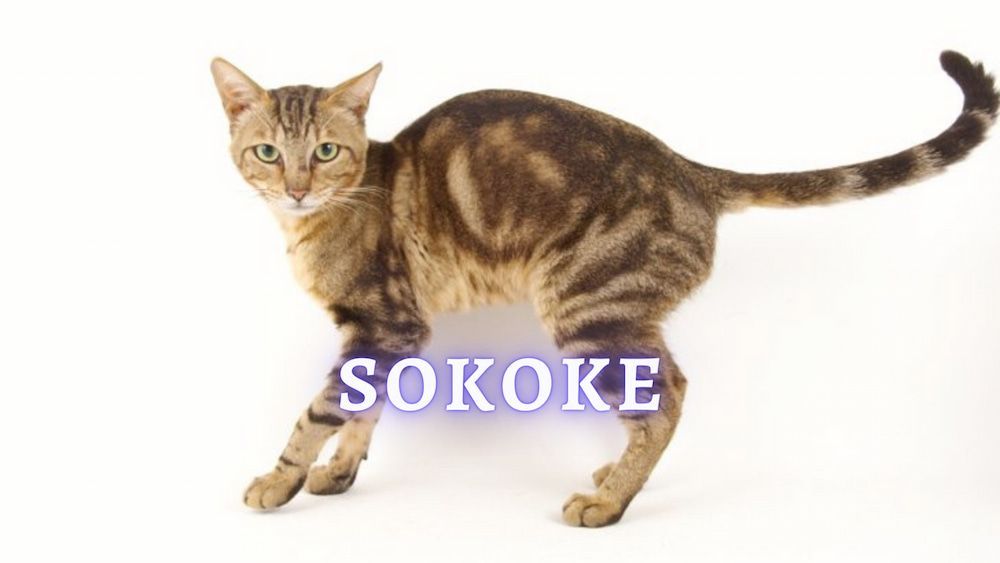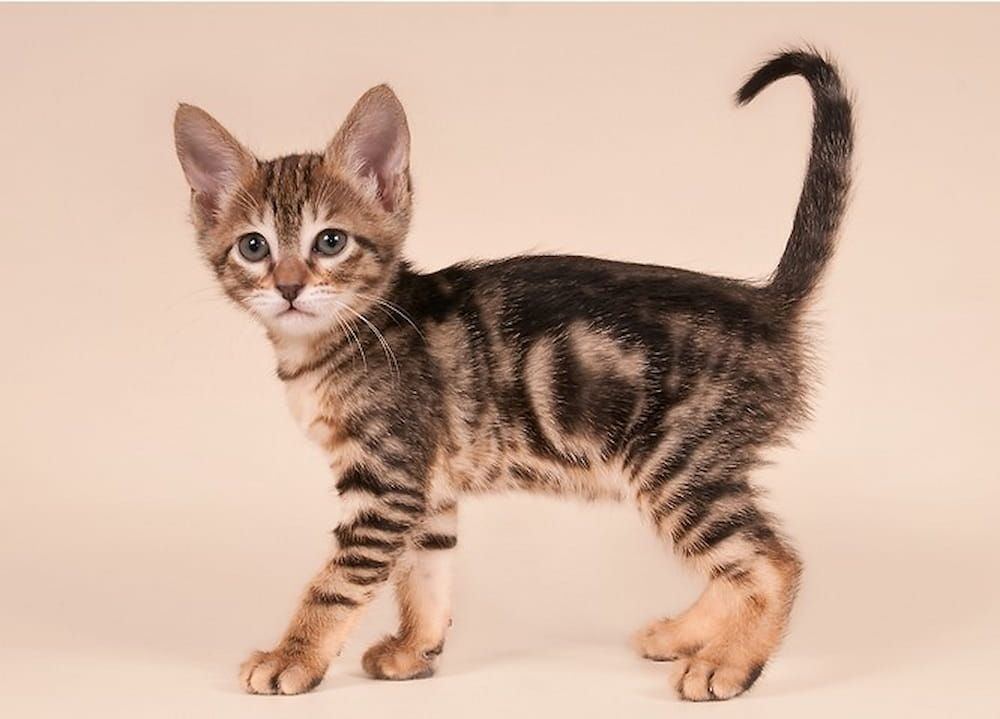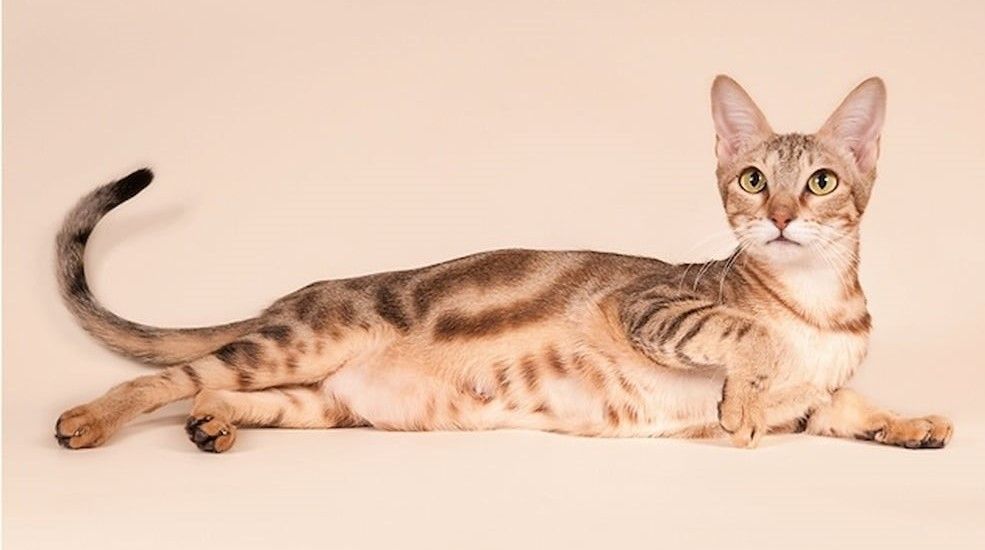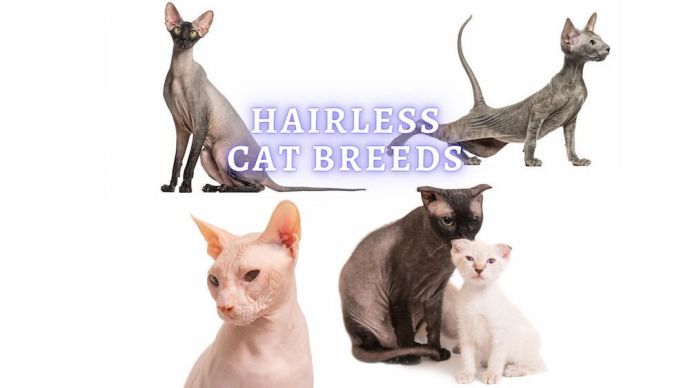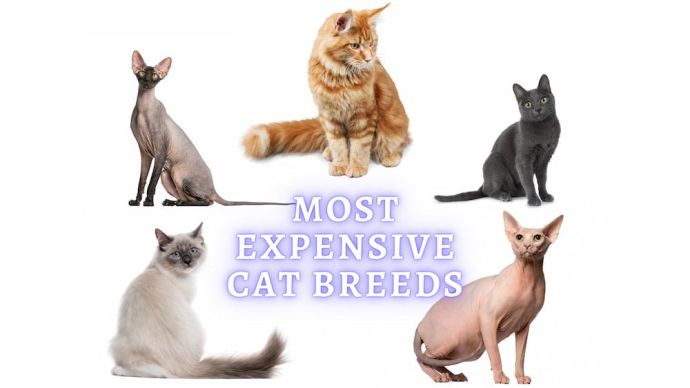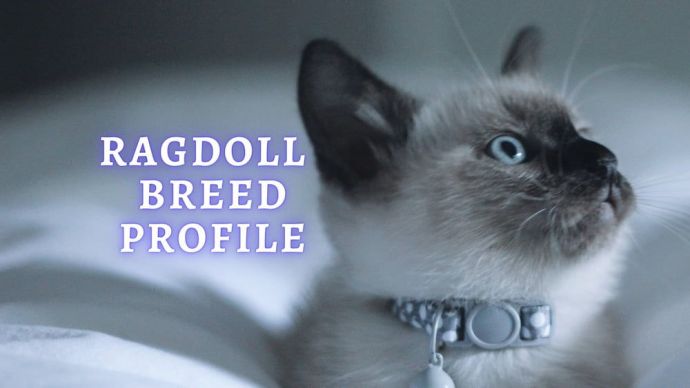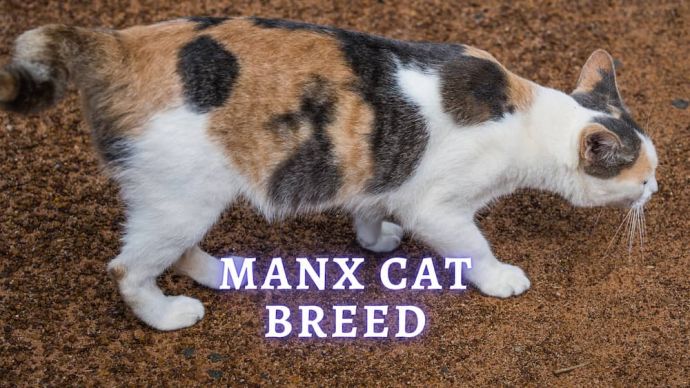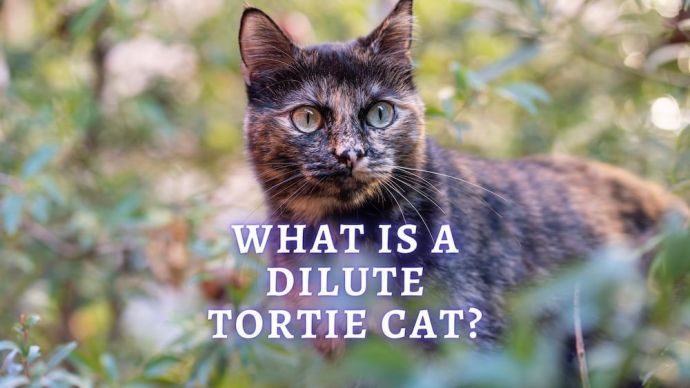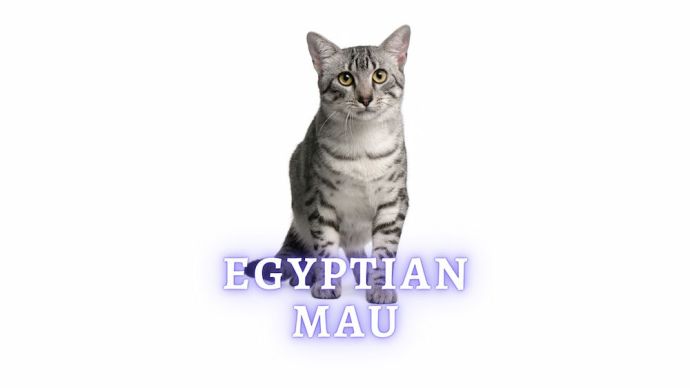Sokoke Cat Breed: Breed Origins, Temperament, Health and Care
Written by:
Author: Seb Jenkins
Seb is a professional SEO writer with a degree in Journalism, he has five years of experience in writing and editing. Seb specializes in topics like dog and cat breeds, aquarium guides, and pet care. He is passionate about educating and entertaining animal owners worldwide. In his spare time, Seb enjoys writing fiction novels.
View all 83 articlesLearn about our editorial process and veterinary review board.
Viewed: 2464
Updated on: 06/23/2023
The Sokoke cat is one of the rarest breeds of domestic cats in the world. However, despite their rarity, Sokokes are extremely popular in the animal lover world. They are infamous for their playful behavior and intelligence and being the perfect family feline. Rest assured, they fit seamlessly into family life and are often the first ones to greet someone at the front door. Not only are they a pleasure to be around, but they are also beautiful cats to look at. We certainly cannot blame you for doing some research into them. Fortunately for you, we have a compiled everything you need to know a guide on Sokoke cats right here.
Characteristics
The following are the main characteristics shown by the Sokoke cat:
| Height | 7-8 inches |
| Weight | 5-10 pounds |
| Coat Colors | from light brown to chestnut with Afcican tabby pattern. Rarely blue, melanistic, and seal point lynx. |
| Lifespan | 15-20 years |
| Origin | Kenya |
| Group | Medium-sized short-haired |
Breed History
Sokokes actually occurred naturally as a native breed in Kenya, more specifically, the Arabuko-Sokoke Forest Preserve. They were dubbed Kadzonzo by a local tribe, which essentially translates to ‘looks like tree bark’. Of course, this came from their distinct coloring and markings. Unfortunately, while they were born in the wild, Sokoke cats are now almost extinct there.
In 1978, Jeni Slater, a professional horse breeder, found a litter of cats in her garden. With the help of her horse breeding staff, she raised two of the kittens to become domestic cats. Two of these kittens went to Europe before Slater imported another three. This started Sokoke cat breeding in Europe, with more and more trickling over from Kenya through the 1990s. Over the years, the breed became more popular and the breed lines became stronger. In 2015, Sokoke was given GCCF preliminary recognition, an international cat association.
Interesting Facts:
- They originate in Kenya.
- They are easy to groom and shouldn’t cause bad allergic reactions.
- They are known for their quirky personalities and crazy antics.
- The Sokoke cat does not walk around the house; it tip-toes.
- Sokokes can be taught a variety of tricks – even fetch!
- They love greeting their owners at the door when they come home.
- They are very vocal and love chatting with their family.
- They are very dog-like in their playfulness and sense of adventure.
- They are always climbing.
Temperament and Personality
The Sokoke cat is often compared to a standard family dog. This is due to their love of exploring, their fun nature, and their playfulness. It’s essentially like having a young pup running around the house bringing a smile to your face. Much like dogs, the Sokoke cat also loves playing with water. However, such is their intelligence and dog-like ability, the Sokoke cat can even be taught certain tricks often associated with canines. Some owners have actually been able to teach their Sokoke cats to fetch.
The Sokoke cat can also rival the dog world in terms of loyalty. They are known to be very loyal to the humans they live with and will stay close to wherever you are. Therefore, you may notice that when they curl up for a nap, they will do so in the same room as you. They are also known to greet family members at the door when they return home. However, the flip side of this is that you should not leave them alone for long periods in the day; otherwise, they may suffer from loneliness and even develop separation anxiety. As such, they are perfect for family life when there is often at least one person around at all times of the day.
Due to their active, adventurous, and inquisitive lifestyle, Sokoke cats thrive when given a decent amount of space in which to roam. They want to satisfy their instincts to explore and climb and play, so they are better suited to larger spaces rather than, for example, small apartment living.
| Rating (out of 5) | |
| Affectionate with family | 4 |
| Shedding | 1 |
| Health | 3 |
| Playfulness | 4 |
| Vocal | 3 |
| Kid-friendly | 5 |
| Stranger-friendly | 3 |
| Easy to groom | 4 |
| Pet-friendly | 4 |
| Intelligence | 4 |
Feeding and Diet
You will be happy to hear that Sokoke cats do not have any special nutritional needs. However, they do best on a high-quality diet. Fresh food would be ideal for a Sokoke, but if you are unable to provide this then a brand with good protein and limited carbohydrates would serve your cat well. The main ingredient of this food should be meat or fish, the real kind rather than filler or replacements. It is also always a good idea to purchase food aimed towards your cat’s age range to ensure they are getting all the stuff they need to remain healthy.
READ MORE: TOP-10 Best Dry Cat Food (Vet Review)
Grooming and Shedding
Sokoke cats are an absolute pleasure to groom because it takes minimal effort at all. They have short coats with thin fur, which often comes in a shade of brown and a tabby pattern, which is why it is compared to the bark of a tree. All you are required to do is give your Sokoke cat one quick brush per week to reduce the chances of rooted mats. That’s it. These cats are very low maintenance in terms of grooming. Sokoke cats prefer hotter climates to colder ones, seeing as they originate from Kenya. However, in the hotter summer months, you should still ensure they always have access to fresh water and shade when they need it.
Known Health Problems
Fortunately, Sokokes are generally pretty healthy cats. However, that doesn’t mean you shouldn’t take them for their regular vet check-ups – which is a necessity with any animal no matter their track record of health. In terms of breed-specific health problems, there isn’t really anything to speak of for most Sokokes. One thing to look out for, which is standard with many cats, is signs of dirt building up in the ears, leading to a possible infection. You could also look to converse with your vet about a tooth brushing plan for your Sokoke. Our general advice would be to always be on the lookout for changes in their behavior or any signs of pain/distress.
In terms of care, purchasing a scratching post is always a good idea for your Sokoke to keep them healthy and their nails shorter. Sokoke cats have lots and lots of energy while also love to climb, so investing in a cat tree or similar climbing products can be a great idea. In fact, you can even walk your Sokoke on a leash, but make sure to use a cat-specific harness and ease them into this routine.
Training
Believe it or not, you can actually train your Sokoke cat to do tricks, such as their intelligence. Of course, as with any domestic cat, the most important thing you want to teach them is where to go to the toilet. You will not have any problems with simple tasks like that. However, there is far more you can achieve with your Sokoke. Some owners have even been able to teach their cat to play fetch as if it were a dog. Some have also been able to teach their Sokokes certain commands. In general, you will find that your Sokoke is extremely receptive to training because, not only are they very clever, but they are also highly inquisitive.
Adoption
As we explained above, the Sokoke cat is very rare breed. In fact, it is among the rarest breeds in the United States and the wider world beyond. The breed is almost extinct in the wild back in Kenya, meaning only breeding programs are keeping it going. As such, the easiest place to find one of these cats is through a local breeder. Because they are so rare, quite expensive, and tricky to get your hands on, the chances of finding one in a shelter or adoption agency are pretty slim. Of course, we always recommend giving a home to a cat who needs one rather than purchasing a bred kitten, but if you have your heart set on a Sokoke, that may prove tricky.
If you want to try and find a Sokoke adoption, these are a good place to start:
Kittens and Breeders
This is your best chance of finding a Sokoke local to you. Although the Sokoke is almost extinct in Kenya and still very rare across the world, there are select breeding programs set up to keep them going. Some simple research into your local area should reveal some breeding options to you. Always select a breeder who has good reviews to ensure that you are actually getting a healthy Sokoke kitten rather than something else.
Last words
And there we have it, everything you need to know about the Sokoke cat breed. They truly are a joy to have around the family home and will be a welcome addition to your group. If you have any further questions, feel free to get in touch or post a message in the comments section below. We wish you all the luck with your new pet.
FAQs
Are Sokoke cats rare?
A Sokoke forest cat is very rare. In fact, they are among the rarest cat breeds not only in America, but the world! They originated from Kenya and have been trickling over to the US over the past 40 years, but they are now almost extinct in the wild. Fortunately, a breeding platform has been set up in America, meaning there should be a steady supply if you are looking for one.
How much does a Sokoke cat cost?
As they are so rare, Sokoke cats often cost between $500 and $2,000. This is on the expensive side of things for a domestic family cat, but they are definitely worth every penny in terms of love, entertainment and loyalty.
How do I know if my cat is a Sokoke?
Sokoke cats have pretty distinctive markings. In fact, their brown coats and markings led to them first being dubbed Kadzonzo by a local tribe in Kenya, which essentially translates to ‘looks like tree bark’.
How big do Sokoke cats get?
Sokoke cats often grow to a height of between 7 and 8 inches, a length of 12 to 16 inches, and a weight of 5 to 10 pounds. They are classed as medium-sized cat.
Article Sources:
- “Hope For Paws.” Animal Rescue, 31 Dec. 2021, hopeforpaws.org/.
- “Adoptable Cats.” Best Friends, bestfriends.org/adopt/adopt-our-sanctuary/cats.
READ MORE: Best Cat Toys
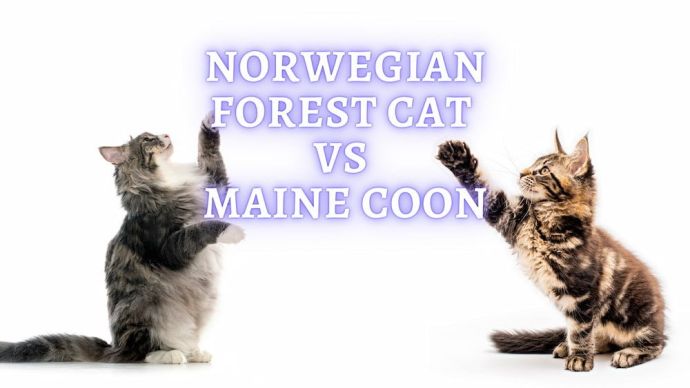 Cat Breeds Norwegian Forest Cat vs. Maine Coon: What are Their Similarities and Differences?
Cat Breeds Norwegian Forest Cat vs. Maine Coon: What are Their Similarities and Differences? - 121
- 0
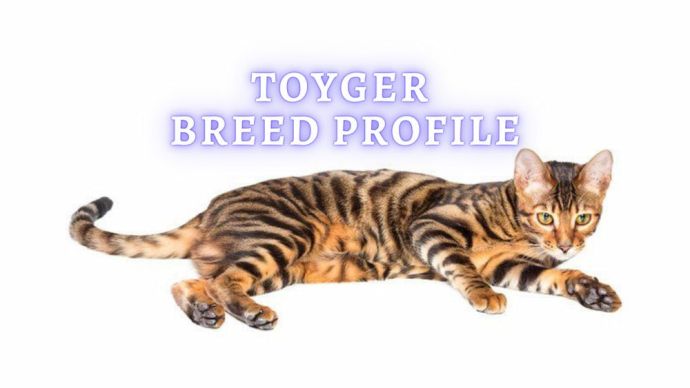 Cat Breeds Toyger Cat: Toy Tiger Cat Breed History, Personality, Adoption, Cost
Cat Breeds Toyger Cat: Toy Tiger Cat Breed History, Personality, Adoption, Cost - 755
- 0
 Cat Care Why Does My Cat Attack My Legs? 10 Reasons Why and What To Do About It (Vet-Approved Advice)
Cat Care Why Does My Cat Attack My Legs? 10 Reasons Why and What To Do About It (Vet-Approved Advice) - 45082
- 21
 Cat Veterinary Tips Cat Stomach Gurgling: Vet Advice on Why is Your Cat Stomach Gurgling?
Cat Veterinary Tips Cat Stomach Gurgling: Vet Advice on Why is Your Cat Stomach Gurgling? - 33729
- 4
 Cat Veterinary Tips My Cat Lost its Voice: Can Cats get Laryngitis? (Vet Advice)
Cat Veterinary Tips My Cat Lost its Voice: Can Cats get Laryngitis? (Vet Advice) - 22889
- 13









